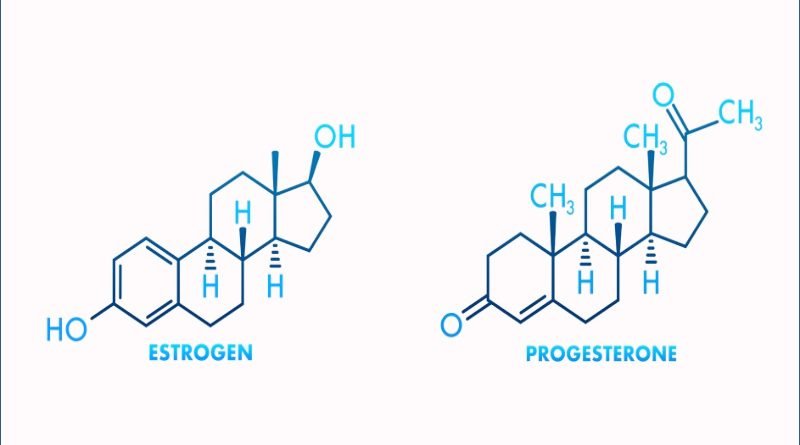Side Effects and Risks of Estrogen Blockers: A Comprehensive Guide
Estrogen blockers, also known as anti-estrogens, play a crucial role in various medical conditions.
They are primarily used to manage hormone-related conditions, such as certain types of Breast Cancer and hormonal imbalances.
While these medications can offer significant benefits, it’s important to be aware of their potential side effects and risks.
In this article, we will explore the functions of Estrogen blockers, their medical uses, and the potential side effects associated with their usage.
Functions and Medical Applications of Estrogen blockers
Estrogen blockers are medications designed to interfere with estrogen, a pivotal hormone with crucial roles in both male and female physiology.
It plays a significant role in reproductive system development, maintaining bone health, and supporting cardiovascular function.
However, excessive estrogen levels can trigger a range of health issues.
Estrogen blockers decrease estrogen production or hinder its effects, offering effective treatments for diverse medical conditions.
Breast Cancer Treatment
Estrogen blockers play a crucial role in treating hormone receptor-positive breast cancer.
In this scenario, estrogen stimulates the growth of cancer cells by interacting with estrogen receptors.
By either decreasing estrogen production or preventing receptor interaction, Estrogen blockers effectively impede this process, curbing cancer cell growth and diminishing the likelihood of recurrence.
Hormonal Imbalances
Estrogen blockers find their role in addressing hormonal imbalances, exemplified by conditions like polycystic ovary syndrome (PCOS).
This disorder is characterized by elevated androgen levels and disrupted estrogen balance, leading to irregular menstrual cycles, fertility challenges, and other related health issues.
Through the moderation of estrogen activity, these blockers restore hormonal equilibrium, alleviating the distressing symptoms associated with PCOS.
Endometriosis Management
In managing endometriosis, a condition marked by tissue resembling uterine lining outside the uterus, Estrogen blockers play a crucial role.
These medications provide much-needed relief by curbing the growth and shedding of this misplaced tissue, influenced by hormonal fluctuations.
Delayed Puberty
Estrogen blockers are also instrumental in managing pubertal precocity, which involves early puberty onset.
By delaying the progression of puberty, these blockers grant children additional time to mature before the challenges of adolescence present themselves.
Side Effects and Risks
While Estrogen blockers offer promising benefits, they also carry potential adverse effects.
A comprehensive understanding of these risks empowers patients and healthcare providers to make informed decisions and effectively manage associated complications.
Menopausal Symptoms
A pronounced side effect of Estrogen blockers is the induction of menopausal symptoms, even in premenopausal individuals.
These symptoms encompass hot flashes, night sweats, and vaginal dryness, significantly affecting an individual’s daily life.
Though usually temporary, their intensity varies, necessitating tailored coping mechanisms.
Bone Health Concerns
Estrogen plays a pivotal role in maintaining bone density.
The decline in Estrogen levels due to blockers raises concerns about bone health, especially in postmenopausal women predisposed to osteoporosis.
Healthcare providers often recommend calcium and vitamin D supplementation, weight-bearing exercises, and periodic bone density assessments.
Cardiovascular Effects
Estrogen contributes to cardiovascular well-being by regulating cholesterol and promoting vasodilation.
The potential impact of Estrogen blockers on these benefits raises concerns about cardiovascular risks.
This concern is particularly relevant for patients with pre-existing cardiovascular conditions, warranting vigilant monitoring.
Mood Changes and Depression
Estrogen influences mood regulation, and its disruption may lead to mood swings, irritability, and, in certain cases, depression.
The emotional toll of these changes underscores the necessity of emotional support and mental health care during treatment.
Fertility Implications
For individuals of reproductive age, fertility concerns emerge due to the influence of Estrogen blockers on menstrual cycles.
Irregular periods or temporary amenorrhea can ensue, impacting fertility.
Though fertility typically resumes post-treatment, this consideration is vital for those with future family plans.
Blood Clotting Risk
Estrogen blockers can influence blood clotting mechanisms, heightening the risk of thromboembolic events like deep vein thrombosis (DVT) or pulmonary embolism.
Recognizing blood clot symptoms and seeking immediate medical attention are crucial preventive measures.
Effective Management Strategies
Successfully navigating Estrogen blocker’s side effects and risks necessitates a proactive approach informed by knowledge.
Employ these strategies for effective management:
Open Dialogue
Maintain open communication with healthcare providers, promptly discussing any side effects or concerns.
Regular consultations enable timely treatment plan adjustments based on individual responses.
Symptom Mitigation
Tackle menopausal symptoms with practical measures such as wearing breathable clothing, using fans, and applying cooling packs.
Over-the-counter lubricants or prescribed hormone therapies address vaginal dryness.
Preserving Bone Health
Counteract bone density concerns by increasing calcium and vitamin D intake through diet or supplements.
Engaging in weight-bearing exercises and scheduling periodic bone density assessments can maintain bone health.
Prioritizing Cardiovascular Health
Prioritize heart health through a balanced diet, regular exercise, quitting tobacco, and monitoring cholesterol levels and blood pressure aids in mitigating cardiovascular risks.
Emotional Well-being
Seek mental health support through counseling or therapy to cope with mood changes or depression that may arise during treatment.
Fertility Consideration
Discuss fertility preservation options with healthcare providers before commencing treatment, especially for individuals concerned about future family planning.
Blood Clot Awareness
Educate patients about the signs of blood clots and the importance of immediate medical attention if symptoms arise.
Those at higher risk might require anticoagulant therapy or other preventive measures.
Takeaway
Estrogen blockers are crucial for various medical conditions, including Breast Cancer and hormonal imbalances. However, they come with potential side effects.
These can include menopausal symptoms like hot flashes, bone health concerns, cardiovascular effects, mood changes, and fertility implications.
Additionally, there’s a risk of blood clotting.
To manage these challenges, open communication with healthcare providers is essential.
Patients can mitigate symptoms, prioritize bone and heart health, seek mental health support, and discuss fertility preservation options.
It is crucial to be aware of blood clot signs and act promptly if they occur.
Also visit Digital Global Times for more quality informative content.

